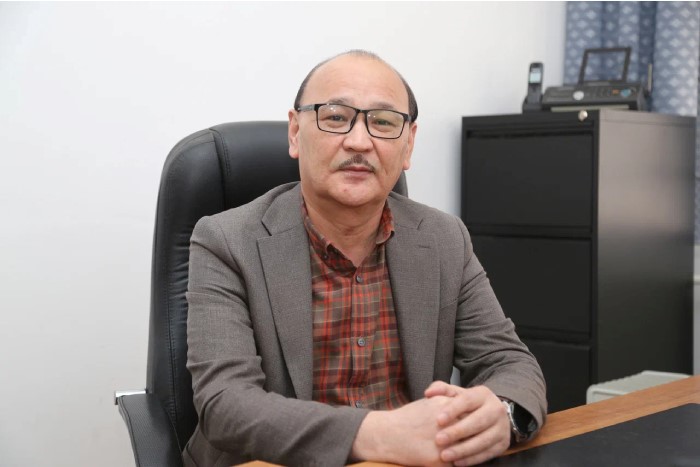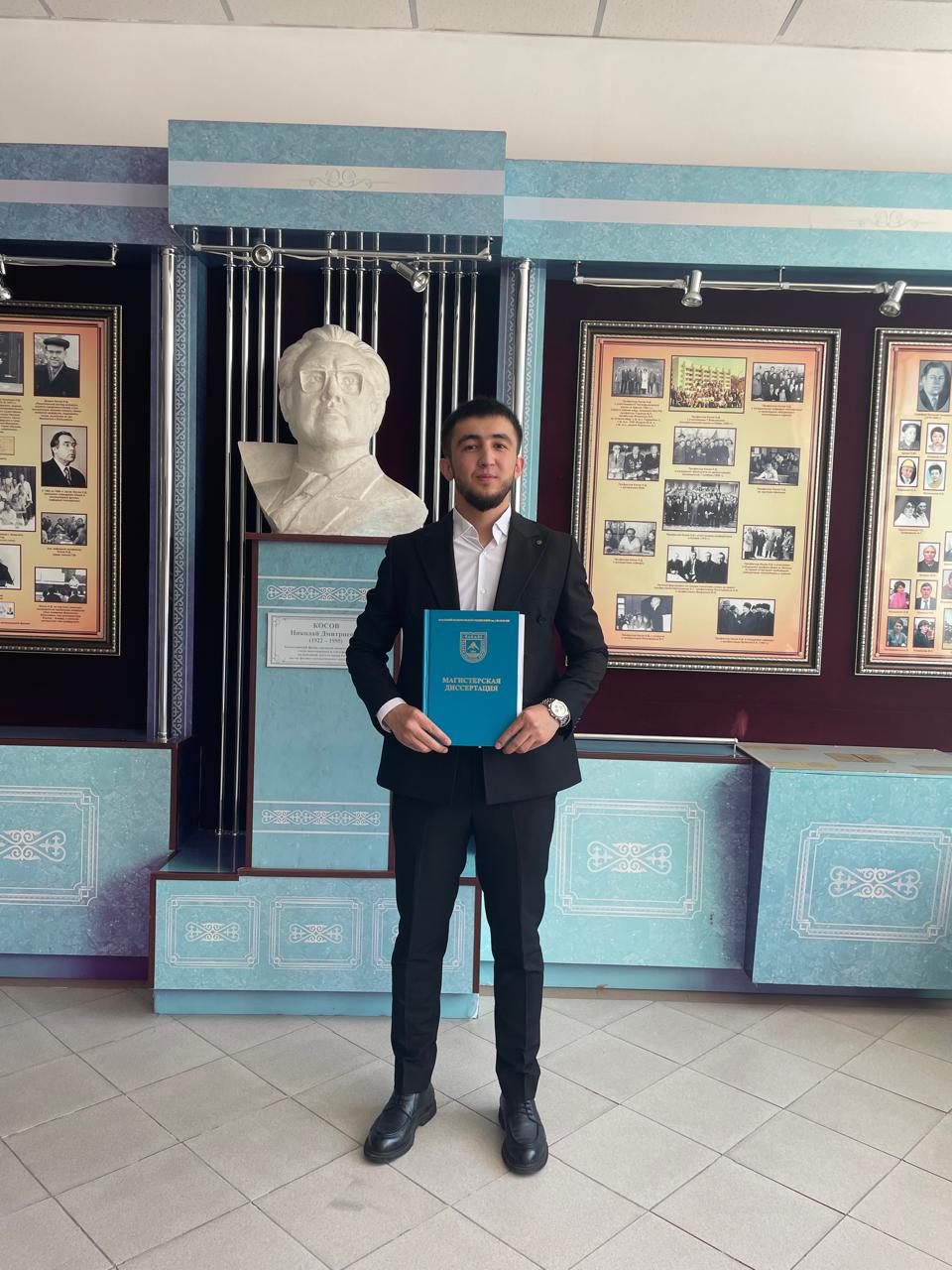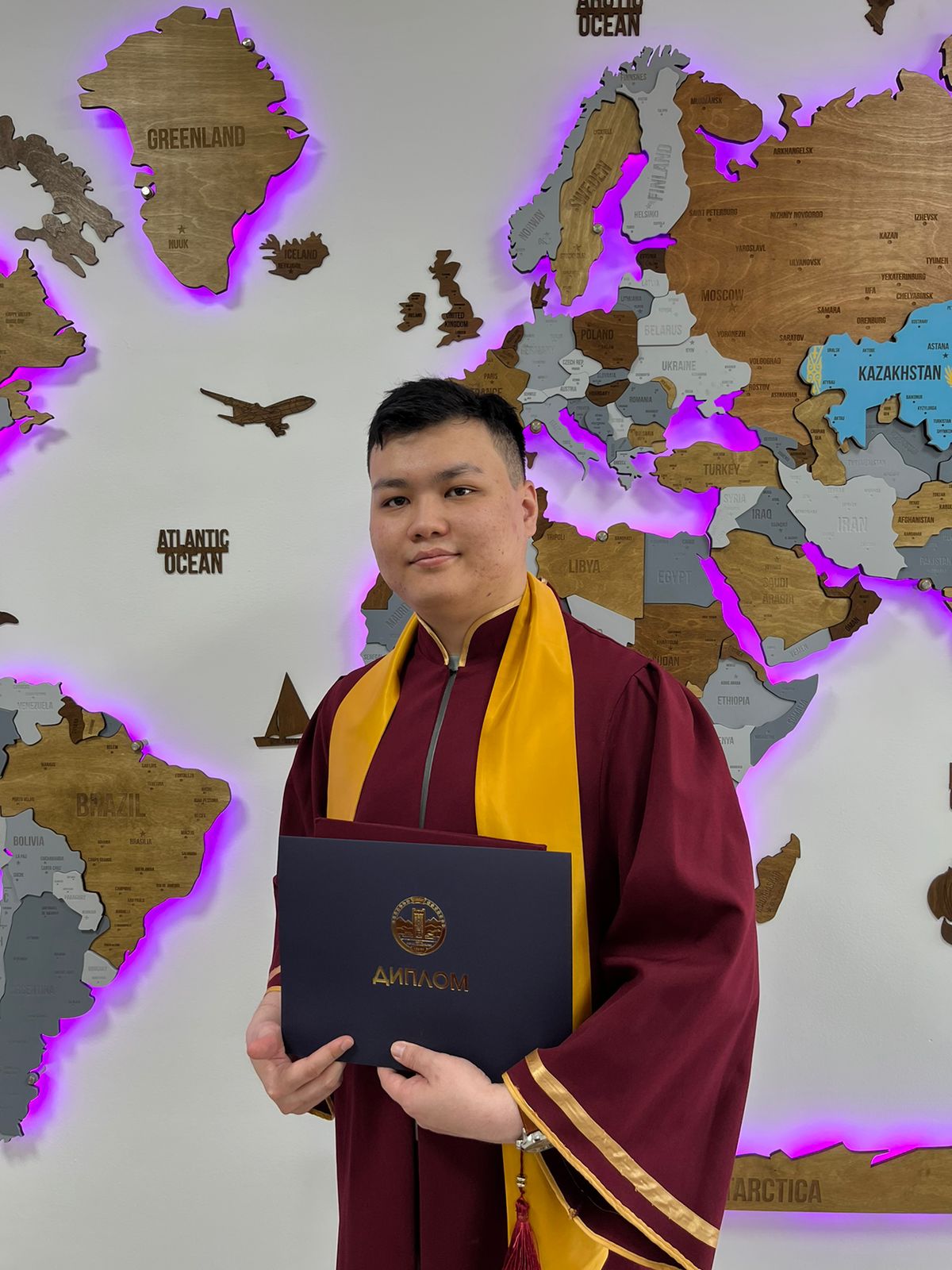
Amangeldy Kuanbaevich Bisenbayev is a distinguished scientist renowned for contributing to biochemistry, molecular genetics, and biotechnology. He holds a Doctor of Biological Sciences degree and a professorship and is an academician of the National Academy of Sciences of the Republic of Kazakhstan. Since 2000, he has been the director of the Scientific Research Institute of Biology and Biotechnology at Al-Farabi Kazakh National University. Born November 6, 1966, in Novokazalinsk village, Kyzylorda Region, Bisenbayev, in 1983, pursued higher education at S.M. Kirov Kazakh State University (KazGU), graduating in 1990 with a biology degree. While at university, he was actively involved in research at the Department of Genetics and Molecular Biology, mentored by Academician R.I. Bersimbay of the National Academy of Sciences of Kazakhstan.
After university, Bisenbayev joined the full-time postgraduate program at the Department of Genetics and Molecular Biology at Al-Farabi Kazakh National University in 1990. He defended his Candidate thesis in 1994, focusing on "Biochemical mechanisms of gibberellic acid's action on the synthesis and secretion of alpha-amylase in isolated aleurone layers of wheat grains." In 2010, he completed his doctoral dissertation on "Biochemical pathways of apoptosis in aleurone cells of wheat grains" within biochemistry, further establishing his expertise and contribution to the scientific community.
For over three decades, the life and career of A.K. Bisenbayev have been intricately tied to the al-Farabi Kazakh National University, beginning with his days as a student. AK has spearheaded numerous international and national scientific projects and initiatives as a distinguished scientist, educator, and leader. His contributions to biochemistry and molecular genetics have earned him significant recognition within the global scientific community. He pioneered a new scientific field in Kazakhstan, focusing on the molecular genetic mechanisms regulating gene activity, intracellular signalling, and the pathways leading to programmed cell death in plants.
His research has unveiled the apoptosis mechanism, elucidating the oxygen radical metabolism system, crucial effector molecules, and enzymes repairing DNA damage caused by oxidative stress. Bisenbayev's work has garnered international accolades, significantly influencing molecular genetics. Bisenbayev's research group has made noteworthy advances in understanding DNA repair, particularly in enzymes repairing oxidative damage in plant DNA. Bisenbayev notably isolated genes for apurinic/apyrimidinic endonucleases in Triticum aestivum and extensively characterised these enzymes. Their research highlighted the role of these enzymes in chromatin fragmentation during programmed cell death in plants. Furthermore, they were the first to identify and describe the function and characteristics of the TOR kinase system components in the aleurone cells of Triticum aestivum. This system is critical for relaying signals from growth factors and nutrients to regulate cell growth and proliferation, marking a substantial contribution to the field.
The research led by A.K. Bisenbayev is crucial for unravelling the fundamental mechanisms of plant cellular differentiation, growth, and development. It plays a pivotal role in devising new strategies to enhance crop productivity and fortify plants against biotic (living threats like pests) and abiotic (non-living threats like drought) environmental challenges. Among the various research interests of A.K. Bisenbayev is the preservation of rare and endangered plant species. His team has achieved pioneering results in assessing the genetic diversity of several rare, endemic, and endangered plant populations within the Balkhash-Ili region, aiming to refine conservation strategies.
Leveraging this foundational research, A.K. Bisenbayev's team has pioneered high-tech biotechnological processes in Kazakhstan to treat organic waste and produce alternative fuels, such as bioethanol. A notable achievement includes the development of recombinant strains that produce cellulolytic enzymes. These enzymes can transform amorphous cellulose directly into bioethanol through genetic engineering techniques, marking a significant advancement in the field. This innovative approach enables bioethanol production from renewable and cost-effective cellulose sources, including cereal straw, paper industry waste, and sawdust.
The work conducted by A.K. Bisenbayev and his team has led to over 150 scientific publications, featured in esteemed international journals and showcased at numerous global forums. Bisenbayev has also contributed to academic literature, authoring a comprehensive dictionary of biological terminology and educational manuals on biochemistry for university students, further highlighting his multifaceted contributions to science and education.
A.K. Bisenbayev devotes considerable effort to nurturing the next generation of scientists. He serves as the chairman of the dissertation council, overseeing the defence of doctoral dissertations in philosophy, biology, ecology, and biotechnology. Under his mentorship, one candidate and six PhD students have successfully defended their dissertations. Bisenbayev's commitment extends beyond academia; he actively engages with young scientists and school students. Since 2001, he has chaired the jury for the Republican Biological Olympiad and has been the scientific coordinator for the Kazakhstan team at the International Biological Olympiads since 2000. His lectures at the Faculty of Biology and Biotechnology at KazNU cover contemporary issues in evolutionary theory, genetic engineering, and molecular biology.
Bisenbayev's excellence in teaching has been recognised with the "Best University Teacher" award twice, in 2006 and 2020. In 2008, his pedagogical achievements were honoured with the Y.Altynsarin Award by the Ministry of Education and Science of the Republic of Kazakhstan. Most notably, in 2022, the President of the Republic of Kazakhstan awarded him the Order of Kurmet, recognising his significant contributions to science and education.
Other news



